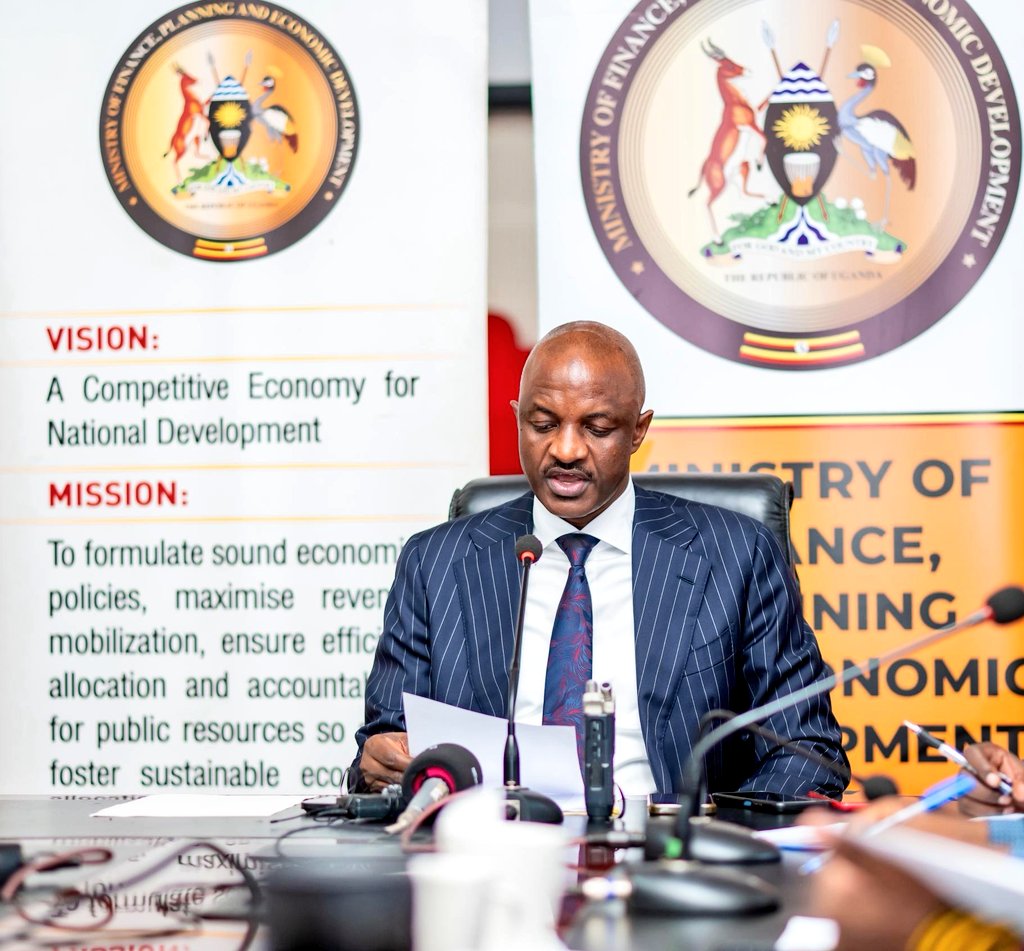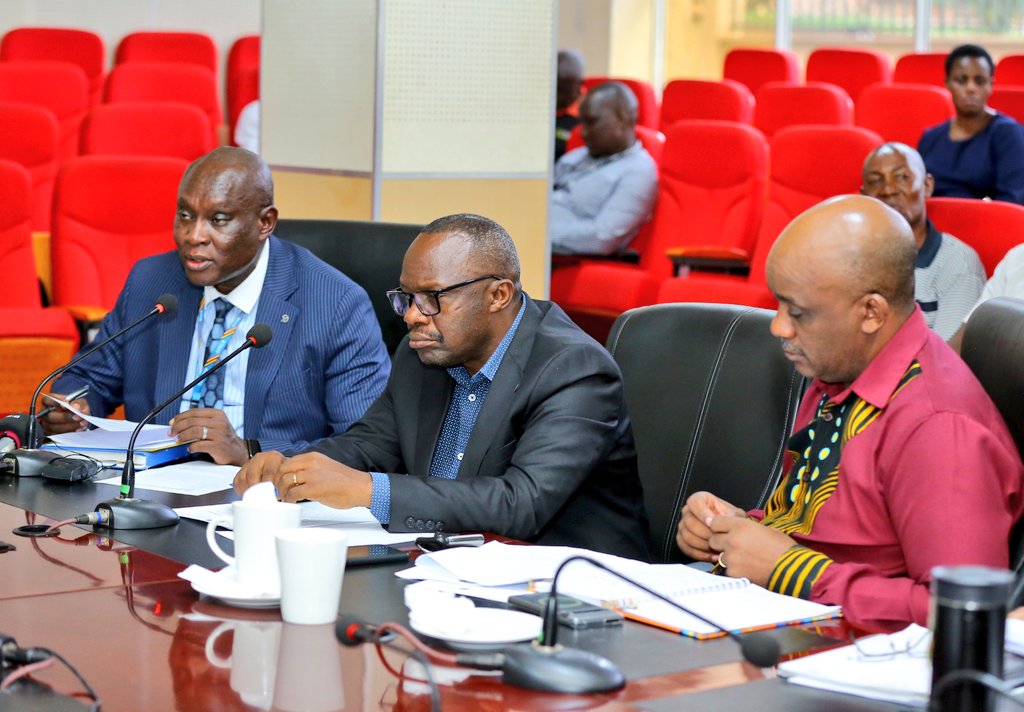Uganda allocates Shs 17.18 Tn for Q1 FY2025/26 amid economic resilience

Ramathan Ggoobi, Permanent Secretary and Secretary to the Treasury (PSST), addresses the media on Q1 releases for FY 2025/26
The Ministry of Finance, Planning and Economic Development (MoFPED) has today released Shs 17.18 trillion for the First Quarter (Q1) of Financial Year 2025/26, accounting for 23.7% of the approved national budget. The funds will support critical sectors including health, education, infrastructure, and security under the government’s ambitious Ten-Fold Growth Strategy.
Speaking at the press briefing, Ramathan Ggoobi, Permanent Secretary and Secretary to the Treasury (PSST), outlined the state of the economy and emphasized that Uganda’s macroeconomic fundamentals remain strong despite global shocks.
“The economy continues to exhibit resilience and sustained growth,” said Mr. Ggoobi. “Real GDP growth is projected at 7% this financial year, and we expect this to reach double digits in the medium term.”
He highlighted that in FY2024/25, Uganda’s economy expanded to Shs 226.34 trillion (USD 61.3 billion), up from Shs 203.71 trillion in the previous year. Growth was driven by public investment in programs like the Parish Development Model (PDM), robust exports, increased household expenditure, and growth in fixed capital formation.
Inflation remains contained, recorded at 3.9% in June 2025, while the Uganda Shilling appreciated by 1.3% against the US Dollar, continuing its strong performance in Africa. Uganda’s export earnings also surged 39.1% in Q3 of FY2024/25, with foreign direct investment growing by 26.3% over the same period.
Breakdown of Q1 releases
The Q1 release of Shs 17.18 trillion includes:
- Wages and salaries: Shs 2.26 trillion
- Debt and Treasury Operations: Shs 6.93 trillion
- Infrastructure (Ministry of Works and Transport): Shs 1.08 trillion
- Health sector: Shs 262.88 billion for the Ministry of Health and Shs 173.96 billion for National Medical Stores
- Education: Shs 143.75 billion for the Ministry of Education and Shs 157.73 billion for public universities
- Security agencies: Shs 1.28 trillion spread across Defence, Police, ESO, ISO, and Prisons
Ggoobi reaffirmed government’s focus on fiscal discipline; “All Accounting Officers must ensure payments and contracts are executed in Uganda Shillings, and no recruitment should be done without clearance from the Ministry of Public Service,” he warned.
Civil Society commends progress but raises concerns

At the event, Julius Mukunda, Executive Director of the Civil Society Budget Advocacy Group (CSBAG), commended the government for its commitment to budget transparency and increased allocation for clearing domestic arrears from Shs 200 billion to Shs 1.4 trillion this year.
“We’re encouraged by the significant step towards clearing domestic arrears, which had become unsustainable,” said Mukunda. “This is critical to restoring trust among suppliers and preventing economic strain on small businesses.”
However, he raised concerns about the list of newly appointed Accounting Officers; “We need assurance that only competent individuals are appointed. The public must know who these officers are, and we request full transparency in their selection,” Mukunda said.
He also asked for the Economic and Fiscal Situation Report, a document necessary to gauge the country’s economic readiness ahead of the 2026 general elections.
Mukunda further queried compliance with the Public Procurement and Disposal of Public Assets (PPDA) reservation schemes, designed to empower youth, women, and persons with disabilities:
“We want clarity on how the Ministry will ensure that special interest group allocations are actually reaching the intended beneficiaries,” he added.
Project implementation gaps persist
Dr. Arthur Bainomugisha, Executive Director of ACODE (Advocates Coalition for Development and Environment), acknowledged MoFPED’s efforts in strengthening investment systems but lamented persistent failures in project implementation, especially at local government levels.
“A staff house at Lemusui Health Centre III in Nakapiripirit has been at slab level since 2014,” Dr. Bainomugisha noted. “This is just one of many stalled and abandoned projects, a clear waste of public funds.”
He recommended stronger supervision mechanisms and enhanced local government capacity; “The government must prioritize efficiency in implementation. Every shilling should deliver impact,” he emphasized.
Climate change and coffee sector overlooked
Both CSBAG and ACODE raised red flags over declining allocations in climate-resilient sectors, warning of potential setbacks in Uganda’s Green Growth commitments.
“The 8.4% cut in sustainable energy and 9.9% in agriculture funding is alarming,” said Dr. Bainomugisha. “Climate change is no longer a future threat, it’s a crisis already costing us millions of dollars.”
He also called for coffee price stabilization, citing the sector’s vulnerability to global market shocks.
“Our farmers need protection from price volatility,” he argued. “Expanding value addition, strengthening cooperatives, and introducing crop insurance are vital.”




